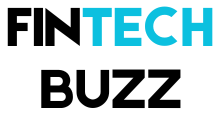Blockchain technology is transforming multiple sectors, and WealthTech is no exception. As financial services evolve, the integration of blockchain in wealth management is proving to be a game-changer, providing enhanced security, transparency, and efficiency. Here’s how blockchain is being incorporated into WealthTech and its potential benefits for the finance industry
1. Secure and Transparent Transactions
Blockchain’s decentralized nature makes it inherently secure. Transactions made on a blockchain are immutable, meaning they cannot be altered or tampered with. This level of transparency is critical in wealth management, where trust is paramount. WealthTech platforms that leverage blockchain can provide their users with a secure environment for conducting transactions, knowing that the data cannot be easily manipulated.
For example, when executing a trade or transferring assets, the blockchain can ensure that both parties are in agreement and that the transaction is transparent, tracked, and verifiable.
2. Smart Contracts for Automation and Efficiency
Smart contracts are self-executing contracts with the terms directly written into code. These contracts automatically execute transactions when predefined conditions are met, without the need for intermediaries. In WealthTech, this can automate everything from investment management to estate planning, significantly reducing administrative overhead.
For instance, smart contracts could be used to automatically trigger the sale or transfer of assets once a certain financial threshold is met. This eliminates delays and the need for human intervention, resulting in more efficient operations and reduced transaction costs.
3. Fractional Ownership and Tokenization
One of the most exciting applications of blockchain in WealthTech is tokenization—the process of converting real-world assets, like real estate or fine art, into digital tokens that can be bought, sold, or traded on the blockchain. This allows for fractional ownership, making high-value assets more accessible to a broader group of investors.
For example, instead of needing a large amount of capital to invest in a luxury property, tokenization enables multiple investors to pool their funds and own a fraction of the asset. This democratizes access to investment opportunities, particularly for retail investors who traditionally lacked the capital to participate in such markets.
4. Enhanced Portfolio Management with Blockchain Data
Blockchain can offer a more reliable and accurate way to store and track data related to an investor’s portfolio. By recording transactions on a blockchain, WealthTech platforms can create a permanent, traceable record of every asset, trade, and transaction associated with a particular investor’s portfolio.
This data can provide greater transparency to investors and help wealth managers create more customized and accurate investment strategies. Investors can also have access to real-time updates on their portfolio’s performance, knowing that the information is verifiable and secure.
5. Improved Custody Solutions for Digital Assets
With the rise of cryptocurrencies and other digital assets, wealth managers need secure solutions for custodianship. Blockchain-based platforms provide a secure, transparent way to store and manage digital assets like Bitcoin, Ethereum, and tokenized securities.
Using blockchain for custody means that these assets can be easily tracked and stored securely, minimizing the risk of theft or fraud. Moreover, blockchain-based custodians can offer more efficient ways to manage both traditional assets and digital assets in one platform, providing a unified solution for investors.
6. Reduced Costs Through Disintermediation
One of the key advantages of blockchain technology is its ability to reduce the reliance on intermediaries such as banks, brokers, and clearinghouses. By using blockchain’s decentralized ledger system, WealthTech platforms can eliminate the need for third-party verification and oversight, reducing transaction fees and operational costs.
In the long term, this can lead to more competitive pricing for investors, particularly in wealth management services that traditionally carry high fees due to intermediary involvement.
7. Improved Regulatory Compliance and Reporting
Blockchain’s transparency makes it easier for WealthTech platforms to meet regulatory requirements. With all transactions recorded in an immutable ledger, compliance and audit trails are easier to maintain, reducing the risk of human error or manipulation.
Regulators can access accurate, real-time data from the blockchain to ensure that wealth managers and investment firms are adhering to the necessary rules and regulations. This makes reporting and compliance much more efficient and reduces the cost of audits for WealthTech companies.
8. Cross-Border Investment Made Easier
Blockchain can facilitate faster and cheaper cross-border transactions, which is highly beneficial in global wealth management. Traditional international transfers involve multiple intermediaries, long processing times, and high fees. Blockchain eliminates these inefficiencies by allowing for direct peer-to-peer transfers, making global investment and wealth management more accessible.
Blockchain’s transparency also helps to reduce currency risk by enabling automatic exchange rate adjustments, making international investing easier for individuals and institutional clients alike.
Challenges to Blockchain Integration in WealthTech
While the benefits of blockchain in WealthTech are clear, there are still some challenges that need to be addressed, including:
- Scalability: Many blockchain networks struggle with scalability, meaning they may not be able to handle large volumes of transactions quickly enough for the fast-paced financial industry.
- Regulatory Uncertainty: While blockchain offers transparency, the regulatory framework for digital assets is still evolving. WealthTech firms must navigate these regulations to ensure compliance.
- Adoption: The financial industry is often slow to adopt new technologies. Convincing traditional wealth management firms and investors to embrace blockchain may take time.
Conclusion
The integration of blockchain technology into WealthTech offers numerous advantages, from improving security and transparency to enabling fractional ownership and reducing costs. As blockchain continues to evolve, its potential to disrupt and enhance wealth management services grows, offering exciting opportunities for both investors and wealth managers.
Adopting blockchain could lead to a more democratized, efficient, and secure financial ecosystem, providing innovative solutions to the challenges of modern wealth management. However, industry players will need to address technical, regulatory, and adoption barriers to fully realize its potential.
#Blockchain #WealthTech #FinTech #WealthManagement #FinanceInnovation #FinancialTechnology #BlockchainForFinance


